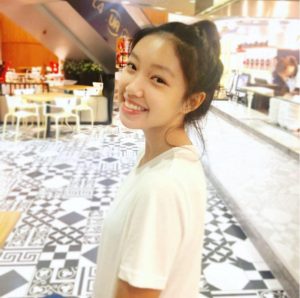Q&A with Bowie Ma, viola
 This past summer the Bowdoin International Music Festival welcomed 255 student participants from 27 countries and 30 states, including 17 remarkable Festival Fellows. Sixty-five percent of these participants received scholarship funds from the Festival. In celebration of an incredible 2016 season and in anticipation of an even better 2017 season, we’ve reached out to last year’s participants to reflect on their experience at the Festival and their lives as musicians.
This past summer the Bowdoin International Music Festival welcomed 255 student participants from 27 countries and 30 states, including 17 remarkable Festival Fellows. Sixty-five percent of these participants received scholarship funds from the Festival. In celebration of an incredible 2016 season and in anticipation of an even better 2017 season, we’ve reached out to last year’s participants to reflect on their experience at the Festival and their lives as musicians.
BIMF: What are some of your earliest musical memories?
Bowie: When I first learned violin I was very fortunate to have good teachers, and they helped me achieve my first music prize at age six. This led me to work hard and create ambitious goals for myself.
BIMF: At what age did you start playing your instrument?
Bowie: I started violin when I was five, and then began viola at 13. Viola is now my primary instrument.
BIMF: Does the instrument you play on have a story?
Bowie: My violin is an old French instrument that belonged to a former teacher of mine. My viola is a Chinese instrument and I enjoy exploring its wide range of colors. I got a new bow a few months ago and now I know how much of a difference a bow can make.
BIMF: What is the longest you’ve ever spent preparing a piece of music?
Bowie: “Hebrew Melody” by Achron on violin. There is so much depth in the music that cannot be learned quickly. I would also say Bach’s first Cello Suite on viola. Learning Bach is like a marathon, you have to work slowly and carefully, and maintain focus over a long period of time, in both preparation and performance.
BIMF: If you could play with any musician who would it be and why?
Bowie: I love playing chamber music and I am happy to play with anybody who also enjoys it. I do have a dream to play in a quartet with Anne-Sophie Mutter and Yo-Yo Ma. They are such strong musical personalities, and I would love to absorb their musical energy!
BIMF: How do you make a well-known piece of music your own?
Bowie: At this stage, I still need a teacher and a good collaborative pianist to make the performance whole. Teamwork is so important. If I want to make a famous piece my own I find how that piece relates to my attitude at the time, and I try to find the piece’s beauty. Whatever I do, I know I need to exaggerate!
BIMF: How would you explain your passion for chamber music to a non-musician?
Bowie: Chamber music is so much fun! I love how it’s a small ensemble with each musician playing an important role. Being a violist means I get to be the inner voice of a piece, both leading and supporting other lines. Blending my sound with cello is really special. I’ve heard that great composers, like Beethoven, wrote their most personal music for string quartets. I hope someday [soon!] I can play the Faure Piano Quartets or a piece by Brahms because the music is so intimate and special.
BIMF: What was one highlight of the 2016 Festival for you?
Bowie: The best part of the Festival was the chance to experience top-level teaching and gain a new sense of musical independence. My instructors, Carol Rodland and Jeffrey Irvine, are such amazing teachers and inspiring individuals. I’ll carry what I learned from them for a very long time. I made so many friends and learned so much from playing chamber music with other students from America and Spain. The bonds I made at the Festival are so strong. Music really brings people together. And I can’t forget; the food at Bowdoin is amazing!
BIMF: What’s next for you after the Festival?
Bowie: I have some performances to prepare for and a few competitions this year. I really hope I can find a violinist to perform the Handel-Halvorsen Passacaglia that I learned at the Festival–what an awesome piece to play! I also have an audition for the Hong Kong Academy for Performing Arts. If all goes well, I can enter the collegiate division two years early!
BIMF: What advice would you offer to an aspiring musician?
Bowie: I hope musicians can bring inspiration to listeners and remember every performance is a special chance to connect with your audience and present the composer’s music.
